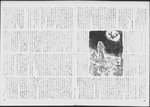- Thread starter
- #21
Story continues...
**********************************
..... They would have been thinking to surrender.
By the way, the time of our all-out attack against the Corregidor was coming close. Ahead of this battle that would be our final one in the Philippines, I felt my intense uplift of morale and was so excited with my strong heart throbs that I was unable to sleep at night. All of our passion and concern were concentrated toward the Corregidor attack only then.
We did not care those wandering unarmed American soldiers around us. No matter how many there would be, we knew that they had made up their minds to surrender and were no harmful anymore.
It would be the winner's morals to protect the surrenderers but the morals should be the means to save them from the state of brave self-determination. I wondered if they had such bravery to be a surrenderer. Even if we did not protect them to leave them in the mountains, they would neither fight nor commit suicide but keep surviving by eating grasses or nuts to the end of war. So would be Taro and Jiro. What we had found in them was a human weakness that anybody can be servile under a situation.
Found out Taro or Jiro, those wandering American soldiers sometimes visited our cookhouse.
Most of them were hungry. We gave them meal and advised to go to our POW camp in Limay, saying they would be able to take hot meal three times a day. They left obediently. They would have known that they were not regarded as a surrenderer any longer.
One day, three American soldiers appeared in our cookhouse to ask for meal. They were all big men of 6 feet height. Judging from their age over thirty and calm manner, I thought their rank would be the noncommissioned officer.
They opened their mouth and placed the hand on the stomach to show they were hungry.
After meal, one of them asked us to hire them. We said "Go to Limay" but they shook their heads and kept sitting. We said the same thing again. One of them said
"Take us three to Limay by car."
"You can reach there on foot by the evening. We have no permission to use our car for you. It is impossible." I answered.
They were clearly perplexed and silent for a while. Before long, one of them, showing his extraordinary efforts on the face, said
"We three are a surrenderer. We are unarmed. We request you to treat us generously."
I felt a slight resistance in his words. His American style thought that a surrenderer has the right to request his protection would have let him say such words.
"Hey. What did you say now?"
Got angry, 1st Class Private Tsujimoto was just going to almost knock him off.
..... to be continued.
**********************************
..... They would have been thinking to surrender.
By the way, the time of our all-out attack against the Corregidor was coming close. Ahead of this battle that would be our final one in the Philippines, I felt my intense uplift of morale and was so excited with my strong heart throbs that I was unable to sleep at night. All of our passion and concern were concentrated toward the Corregidor attack only then.
We did not care those wandering unarmed American soldiers around us. No matter how many there would be, we knew that they had made up their minds to surrender and were no harmful anymore.
It would be the winner's morals to protect the surrenderers but the morals should be the means to save them from the state of brave self-determination. I wondered if they had such bravery to be a surrenderer. Even if we did not protect them to leave them in the mountains, they would neither fight nor commit suicide but keep surviving by eating grasses or nuts to the end of war. So would be Taro and Jiro. What we had found in them was a human weakness that anybody can be servile under a situation.
Found out Taro or Jiro, those wandering American soldiers sometimes visited our cookhouse.
Most of them were hungry. We gave them meal and advised to go to our POW camp in Limay, saying they would be able to take hot meal three times a day. They left obediently. They would have known that they were not regarded as a surrenderer any longer.
One day, three American soldiers appeared in our cookhouse to ask for meal. They were all big men of 6 feet height. Judging from their age over thirty and calm manner, I thought their rank would be the noncommissioned officer.
They opened their mouth and placed the hand on the stomach to show they were hungry.
After meal, one of them asked us to hire them. We said "Go to Limay" but they shook their heads and kept sitting. We said the same thing again. One of them said
"Take us three to Limay by car."
"You can reach there on foot by the evening. We have no permission to use our car for you. It is impossible." I answered.
They were clearly perplexed and silent for a while. Before long, one of them, showing his extraordinary efforts on the face, said
"We three are a surrenderer. We are unarmed. We request you to treat us generously."
I felt a slight resistance in his words. His American style thought that a surrenderer has the right to request his protection would have let him say such words.
"Hey. What did you say now?"
Got angry, 1st Class Private Tsujimoto was just going to almost knock him off.
..... to be continued.
Last edited:



